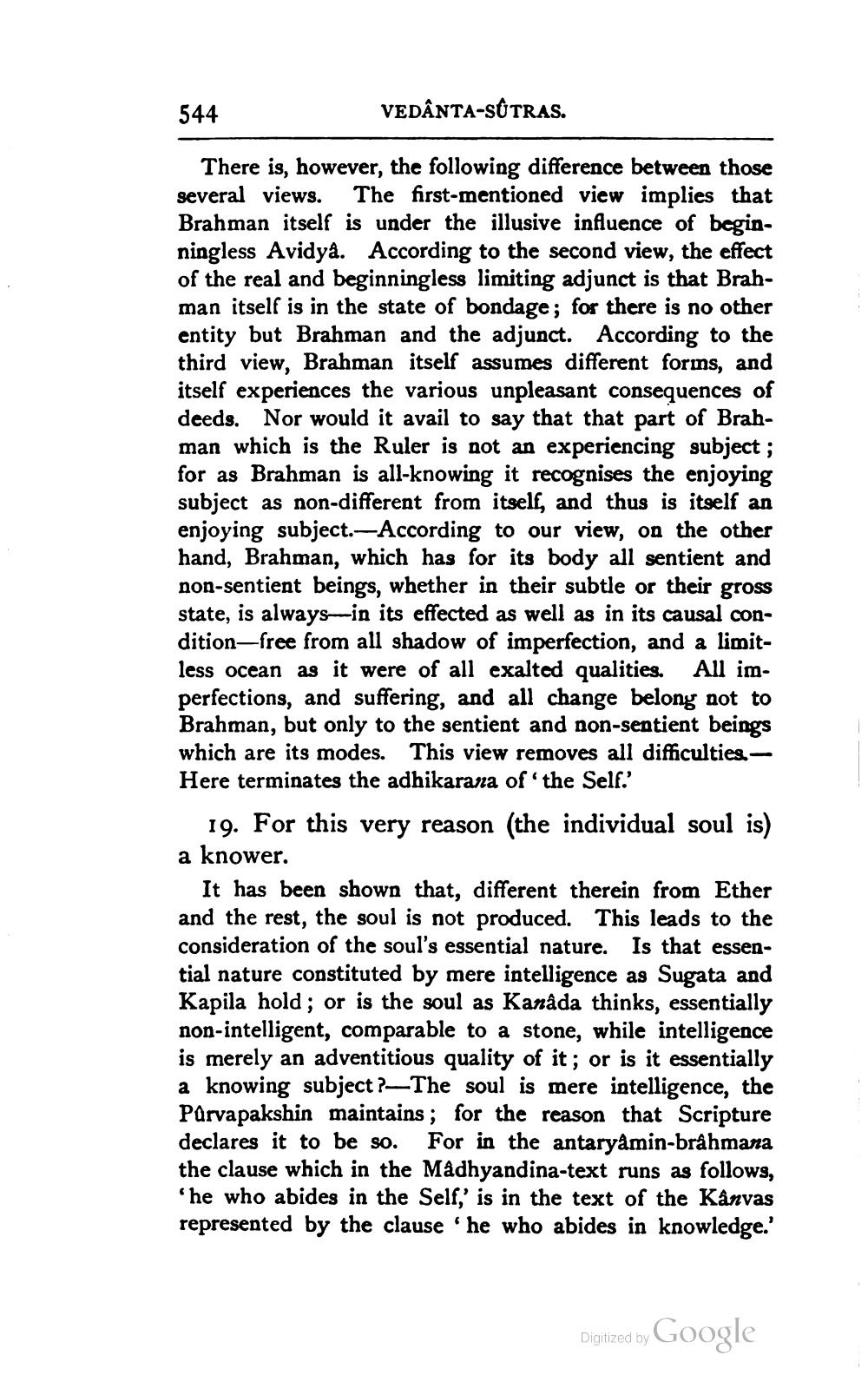________________
544
VEDÂNTA-SOTRAS.
There is, however, the following difference between those several views. The first-mentioned view implies that Brahman itself is under the illusive influence of beginningless Avidya. According to the second view, the effect of the real and beginningless limiting adjunct is that Brahman itself is in the state of bondage, for there is no other entity but Brahman and the adjunct. According to the third view, Brahman itself assumes different forms, and itself experiences the various unpleasant consequences of deeds. Nor would it avail to say that that part of Brahman which is the Ruler is not an experiencing subject; for as Brahman is all-knowing it recognises the enjoying subject as non-different from itself, and thus is itself an enjoying subject.—According to our view, on the other hand, Brahman, which has for its body all sentient and non-sentient beings, whether in their subtle or their gross state, is always in its effected as well as in its causal condition-free from all shadow of imperfection, and a limitless ocean as it were of all exalted qualities. All imperfections, and suffering, and all change belong not to Brahman, but only to the sentient and non-sentient beings which are its modes. This view removes all difficulties - Here terminates the adhikarana of the Self.'
19. For this very reason (the individual soul is) a knower.
It has been shown that, different therein from Ether and the rest, the soul is not produced. This leads to the consideration of the soul's essential nature. Is that essential nature constituted by mere intelligence as Sugata and Kapila hold; or is the soul as Kanada thinks, essentially non-intelligent, comparable to a stone, while intelligence is merely an adventitious quality of it; or is it essentially a knowing subject ?—The soul is mere intelligence, the Pārvapakshin maintains ; for the reason that Scripture declares it to be so. For in the antaryamin-brâhmana the clause which in the Madhyandina-text runs as follows, 'he who abides in the Self,' is in the text of the Kanvas represented by the clause he who abides in knowledge.'
Digitized by Google
Digitized by




